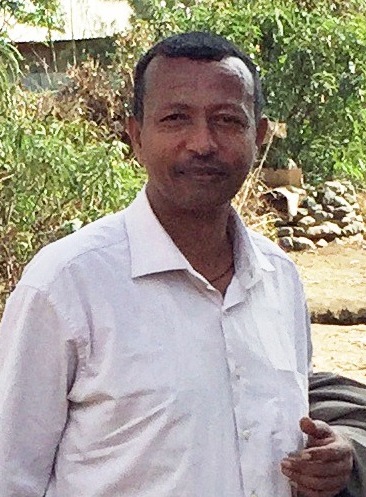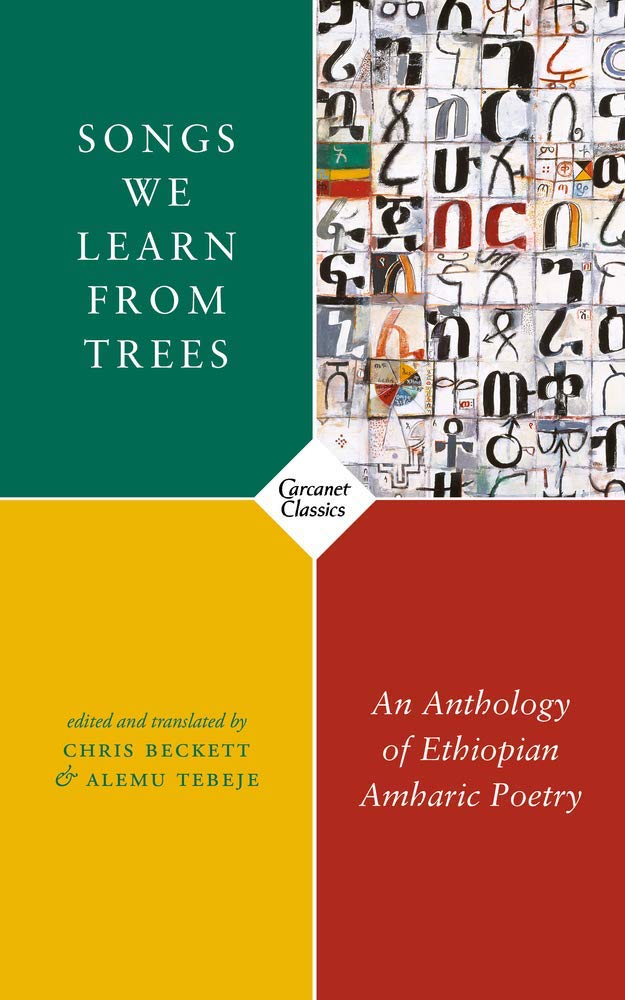So I can feel how big he is,he starves my fingers,leans my toesand fills my chest with feathers.He even shrinks my skullinto a little gourd and boastshe is by far the bestof stomachs in the world,stands there pleased as punchto be a silly paunch.ሞኝ ሆዴከሆዴ ስፋት ጋር ሳነጸፅራቸውቀጥነዋል እጆቼ፣ከስተዋል እግሮቼ፣ትከሻዬ ቀሎ ተጣቧል ደረቴ፣ቅል ሆናብኛለች ትንሽ ጭንቅላቴ፡፡ይዬ ሞኙ ሆዴሁሉን አችል ብሎሰፋና ሰፋና፣አቋሜን አጠፋው ቦርጭ ሆኖ ወጣና፡፡
My Silly Stomach
Zewdu Milikit
Translated from the Amharic by Chris Beckett
Feature Date
- December 21, 2020
Series
- Translation, What Sparks Poetry
Selected By
Share This Poem
Print This Poem
“My Silly Stomach” from SONGS WE LEARN FROM TREES
Carcanet Press, Manchester, England
Translation Copyright © 2020 by Chris Beckett
from the Amharic original by Zewdu Miliki
All rights reserved.
This translation was published in Modern Poetry in Translation ‘One Thousand Suns’ 2016
Reproduced by Poetry Daily with permission.

Zewdu Milikit was born in Bahir Dar on Lake Tana in 1958. He studied language teaching at AAU and is currently a lecturer at Gondar College of Teachers’ Education. He is passionate about the craft and traditions of Amharic poetry. Translations of his poems have been published in MPT and PN Review and, in August 2019, he read some of his work on BBC Radio 4’s Mother Tongue, introduced by Imtiaz Dharker.

Chris Beckett is an English poet who grew up in Ethiopia in the 1960s. He has published two collections with Carcanet Press: Ethiopia Boy in 2013 and Tenderfoot in 2020, which both imitate Ethiopian verse forms and explore issues of love, hunger and displacement from a boy’s perspective. His translations of contemporary Ethiopian poets have appeared in Modern Poetry in Translation, PN Review, The Missing Slate and Asymptote Journal. With Alemu Tebeje, he translated and edited Songs We Learn from Trees, the first ever anthology of Ethiopian Amharic poetry in English, published by Carcanet in May 2020. A collaboration with his partner, the Japanese painter and sculptor Isao Miura, titled Sketches from the Poem Road (after Matsuo Bashō’s The Narrow Road to the Deep North), was published by Hagi Press in 2015 and shortlisted for the Ted Hughes Award. He is a trustee of the Anglo-Ethiopian Society and the Poetry Society.
An Anthology of Ethiopian Amharic Poetry
This is the very first anthology of Ethiopian poetry in English, packed with all the energy, wit and heartache of a beautiful country and language. From folk and religious poems, warrior boasts, praises of women and kings and modern plumbing; through a flowering of literary poets in the twentieth century; right up to thirty of the most exciting contemporary Amharic poets working both inside and outside the country.
"This wide-ranging anthology is a pleasure to read. It opens a long overdue window into the way Ethiopians approach the craft of poetry."
—Malika Booker
Poetry Daily Depends on You
With your support, we make reading the best contemporary poetry a treasured daily experience. Consider a contribution today.




